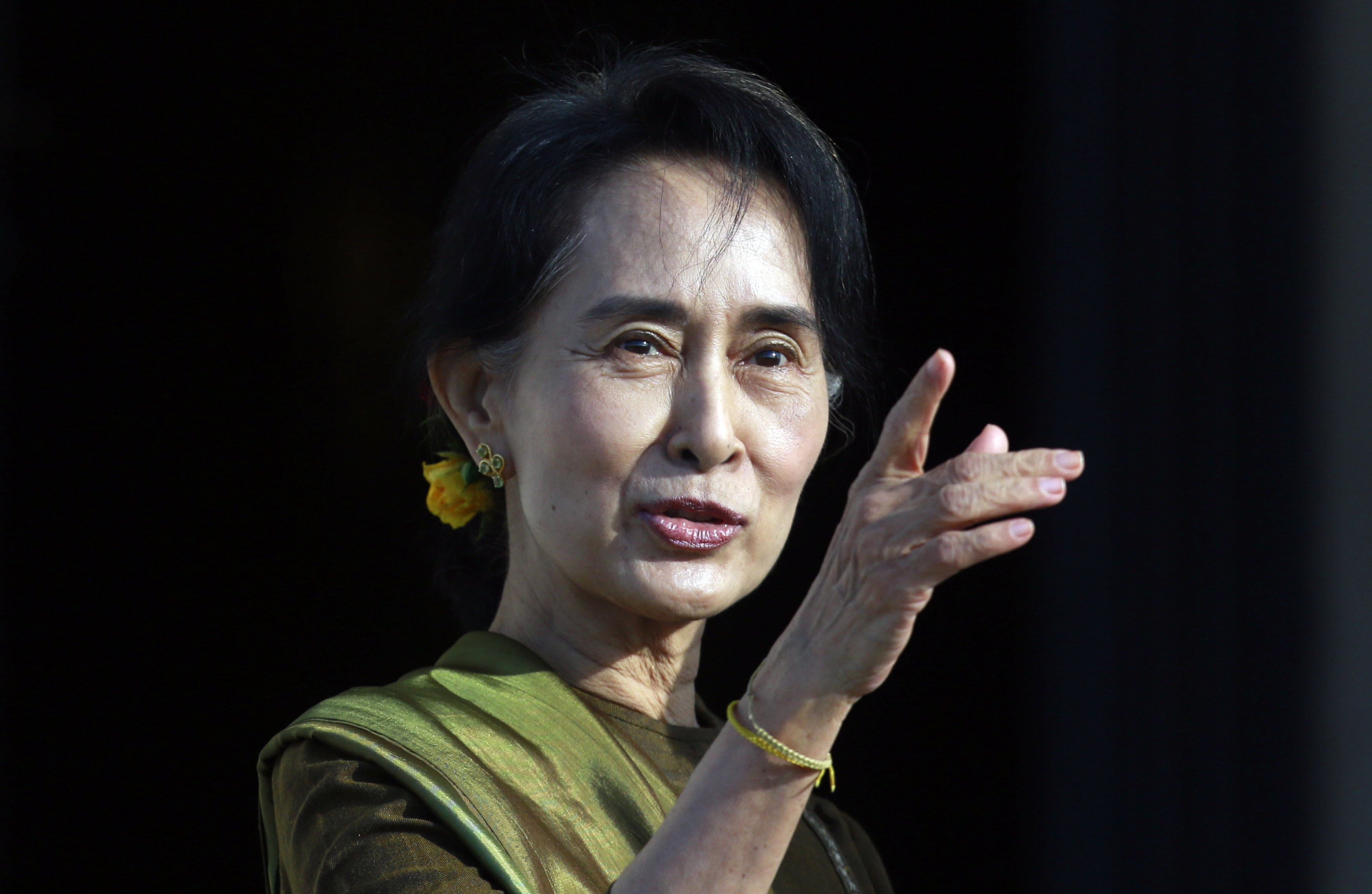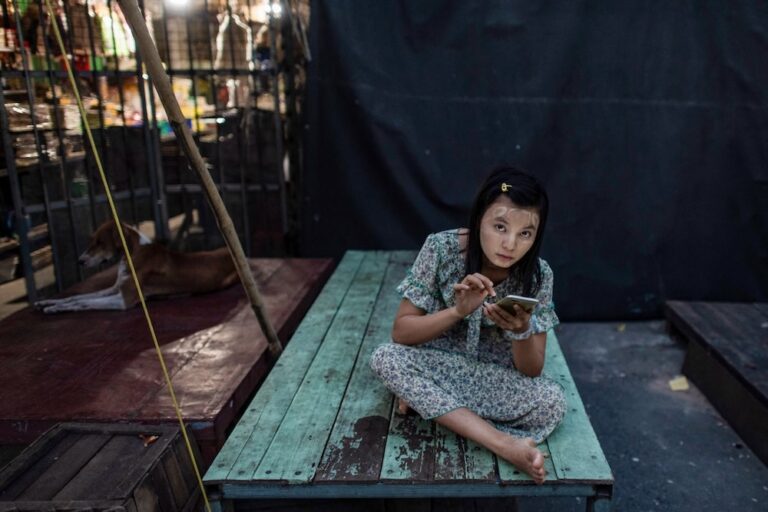Aung San Suu Kyi, an icon of the struggle for democracy in Burma, recently spoke to a room full of journalists who came to Yangon to attend the East-West Center conference "Challenges of a Free Press".
By: Barbara Trionfi, IPI’s press freedom manager
For those of us who spent the past two decades seeing photographs of Aung San Suu Kyi as a thin figure standing in the distance in front of her house, suddenly seeing her in person is a moment full of emotions. I remember that those photographs, taken from too far away – getting closer was forbidden – were the only testimony that she was still alive after years of house arrest.
And suddenly, here she stands, in front of a room full of journalists who came to Yangon to attend the East-West Center (EWC) conference “Challenges of a Free Press”, and crowds of local press already in pre-election mood.
“How can I introduce Daw Aung San Suu Kyi? She is so well known . . . ,” said Charles Morrison, president of the East-West Center, in remarks at a [9 March 2014] luncheon event ahead of the EWC conference. Aung San Suu kyi, leader of Myanmar’s National League for Democracy, was invited to give a keynote speech on “Challenges of a Free Press in Emerging and Established Democracies”.
For many years, Aung San Suu Kyi, or Daw Suu as she is known in her country, has been the icon of Burma’s democracy movement, her house arrest a reminder of the terrible repression imposed by the military junta that ruled the country (and renamed it Myanmar) from 1962 to 2011.
But when the icon becomes the real person, when the ideal becomes the reality, suddenly the word “democracy” is not enough anymore to describe a political programme. When asked about what is the solution to communal violence that has been spreading in the western state of Rakhine, Daw Suu responded: “Respect for the rule of law,” complaining that people keep asking her the same question and do not seem to be satisfied with her answer.
Unfortunately, the rule of law is a distant goal for a country that is just starting to rebuild after over four decades of dictatorship and isolation, for a country that has just started drafting a legislative framework. Respect for the rule of law takes time, if it ever comes, but the violence is now and it needs to be addressed.
Daw Suu is a big supporter of press freedom and her speech on Sunday demonstrated that. “Unless there is a free press to check those who are in power, we will not be able to defend the rights and freedoms of the people,” Daw Suu said. “But at the same time this press has to be aware . . . of the great responsibility that it has for the stability of the nation, which is in fact what we are trying to do.”
Some people, amongst an audience that included many journalists educated in the First Amendment tradition, felt that Daw Suu stressed a bit too often her point that journalists are to be responsible and work for the well being of the nation. “The challenge of a free press is, how much responsibility are you prepared to take on for the betterment not only of the society in which you live, but also of the world in which we all live,” she said.
There was much discussion at the 2014 EWC conference about how Myanmar is at the very beginning of a long transition to democracy. The beginning has been unexpectedly successful – including elections and a freer media market – but the road ahead is still full of hurdles and Daw Suu knows that her experiment in democracy cannot afford to fail.
Talking about the ongoing media law reform, participants of the EWC conference pointed out that Myanmar has the unique opportunity of developing its legal framework in an era when traditional media exist alongside social and civic media. As other countries struggle with laws written before the Internet, Myanmar can start from scratch with a legal framework that addresses today’s challenges. Will Myanmar be able to pick the best practices from other countries? Indeed, a host of international experts would be prepared to advise the new Burmese government.
The immense value of journalism was repeatedly acknowledged in numerous panel discussions throughout the first day of the conference, that ended on the night of 10 March 2014 with a dinner panel on “Courage in Journalism – Stories of Bravery and Determination,” with inspiring and moving testimonials by four journalists who have gone through great hardship to protect their right to cover important stories: U Win Tin from Myanmar; Najiba Ayubi from Afghanistan; Umar Cheema from Pakistan; and Roxana Saberi from the USA, who spoke about her experience working in Iran.
I had the honour of introducing the panel.



